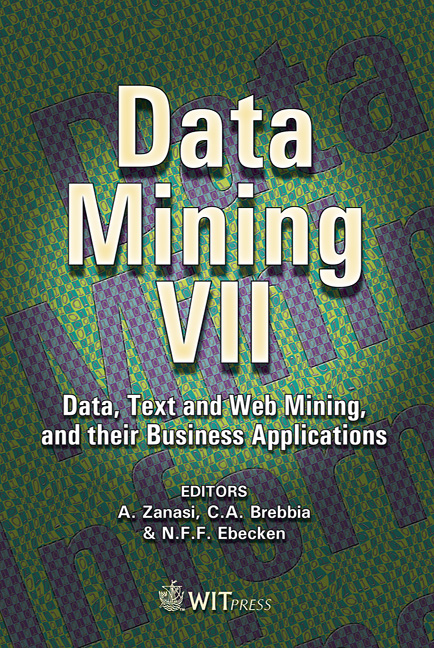Fuzzy Geo-processing For Characterization Of Social Groups: An Application To A Brazilian Mid-size City
Price
Free (open access)
Volume
37
Pages
8
Published
2006
Size
508 kb
Paper DOI
10.2495/DATA060051
Copyright
WIT Press
Author(s)
G. R. A. Gonzalez, A. G. Evsukoff, R. C. Pinto, A. P. B. Sobral & J. A. Silva
Abstract
This paper presents a method for the spatial representation of social-economic groups. This work is based on the Brazilian census geo-referenced data for the revenue and education level of 540 districts in a mid-size city. The data was analyzed by k-means clustering algorithms for determination of groups of similar behavior based only on the revenue and education level data. The groups were then plotted into the city map using geo-referenced information. The aim of this study is to analyze the spatial distribution of groups of equivalent socio-economic levels, taking into account the uncertainty of the classification process. The results show that the model is able to represent the distribution of the social groups in an inter-related and continuous space. Keywords: cluster analysis, fuzzy classification, spatial data mining, socio-economic studies. 1 Introduction Spatial data mining is a very attractive research area, since it provides a way to deal with spatial relationships found in data. Spatial data mining is useful in several industries when geo-referenced information must be taken into account such as government, marketing, oil and gas exploration [4]. In government, spatial data mining can be used to guide social politics and investments.
Keywords
cluster analysis, fuzzy classification, spatial data mining, socio-economic studies.





